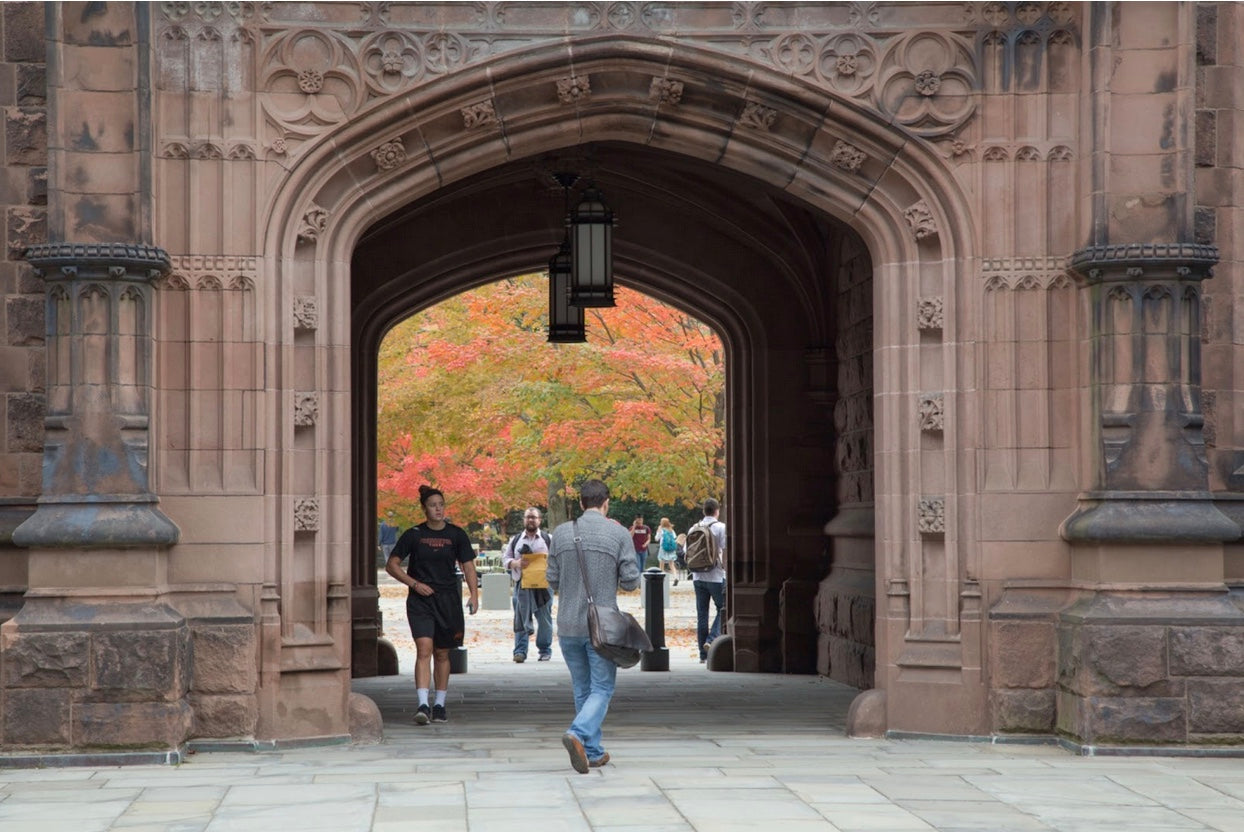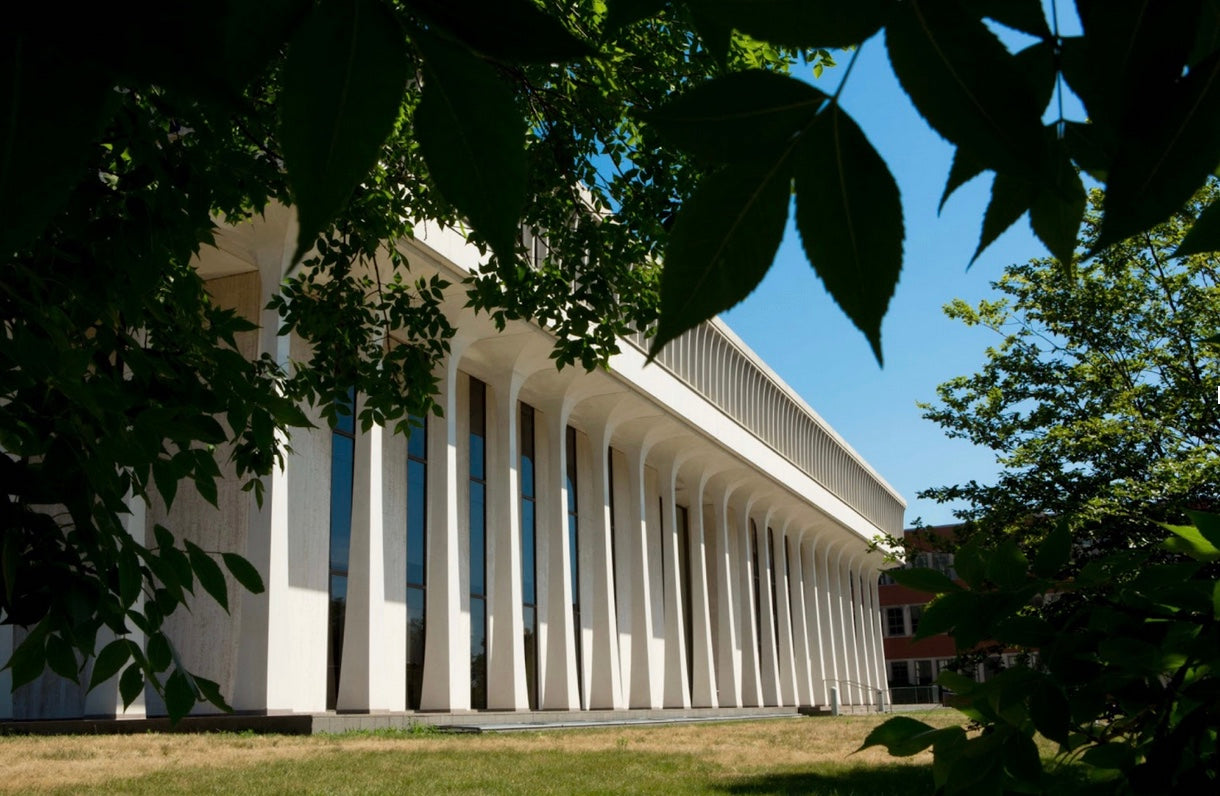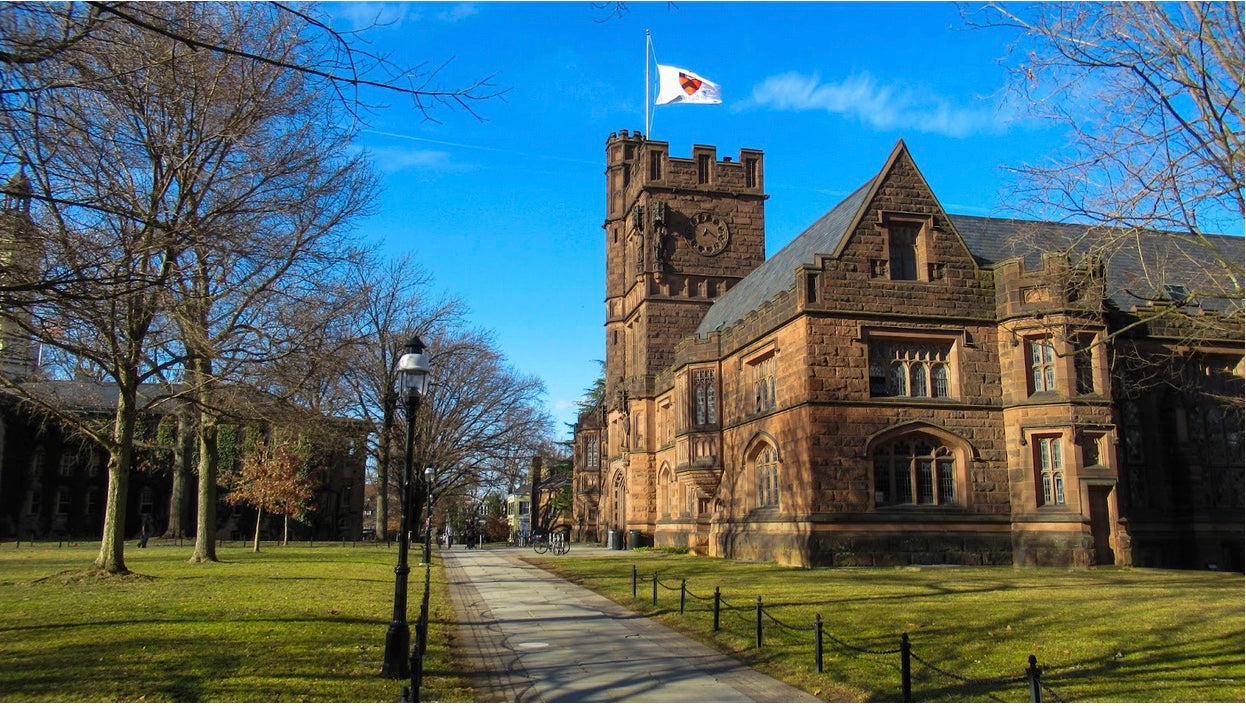Your Cart is Empty
February 29, 2024
To Princetonians for Free Speech Subscribers, members and friends,
This month PFS turns a spotlight on the faculty movement at America’s private elite universities, and we urge President Eisgruber to endorse and lead this growing movement.
We are eager to hear what you think of this newsletter and our other communications so if you have a minute please fill out our subscriber survey if you have not yet done so.
And consider joining our Inner Circle for insider-only events with students, guest speakers, and our founders.
Faculty organizing at America’s elite private universities was in the news this month: In The Fight Over Academic Freedom, The New York Times reported on the rise of faculty groups to “counter the climate of self-censorship and fear that stifles open inquiry.”
Faculty for Yale was introduced on February 13, and so far has 128 named faculty signatories. This group believes that Yale “must rededicate itself to its fundamental mission: to preserve, produce and transmit knowledge.” Columbia Academic Freedom Council launched last month, to “re-articulate and re-assert the timeless and liberal purposes, values, practices, and traditions of a university….[challenges to which] left unchecked, will further erode societal trust in our universities as centers of teaching, learning, research, and innovation.” In the aftermath of the drama surrounding Claudine Gay’s demise, Harvard’s faculty group, the Council on Academic Freedom, with over 150 named faculty members, this month released “The Freedoms of a University,” a statement of principles which it hopes will be adopted by Harvard. You can see more about the statement in the Harvard Crimson. Penn Forward’s “A Vision for a New Future of the University of Pennsylvania” has a membership of over 1,900 that includes faculty, staff, students and alumni. The leader of the pack is, not surprisingly, the University of Chicago’s new permanent entity, the The Chicago Forum, whose most recent event, on February 27, was a discussion titled “Free Speech in a Time of War.” And Dartmouth’s new Dartmouth Dialogues is especially notable for being spearheaded by its President, Sian Leah Beilock.
Which brings us to Princeton: To affirm Princeton’s commitment to the academic freedom of faculty and students, PFS sincerely hopes that Princeton’s leadership chooses to support this growing, inter-collegiate faculty movement by endorsing the Princeton Principles for a Campus Culture of Free Inquiry and by adopting the increasingly favored principle of institutional neutrality, known as the Kalven Report, which PFS reported on HERE.
An encouraging albeit rare example of a Princeton faculty member utterly unafraid to speak, see “Universities are Making Us Dumber” by Sergiu Kleinerman, the Eugene Higgins Professor of Mathematics, published in Tablet Magazine on February 27, 2024.
“Lost in the Chaos: Immanence, Despair and the Political Idols of the Age”
R.J. Snell, visiting lecturer at Princeton, editor-in-chief of Public Discourse (the journal of the Witherspoon Institute) and Director of Academic Programs at the Witherspoon Institute.
March 26th, 5 pm, Robertson 002. Sponsored by PFS in partnership with Princeton’s Federalist Society student chapter.

What Free Speech Is – and What it Isn’t
The Honorable Kyle Duncan, Judge, US Court of Appeals, Fifth Circuit, in conversation with Robert P. George, McCormick Professor of Jurisprudence and Director of the James Madison Program in American Ideals and Institutions.
March 19th, Bowen Hall 222, 5pm. Co-sponsored by PFS and the James Madison Program’s Initiative on Freedom of Thought, Inquiry and Expression.

We welcome Anuj Krishnan ‘27 to the PFS team! Anuj is from Edmonton, Canada and is pursuing a major in the School of Public and International Affairs with minors in Italian and History. On campus, he is a member of the Princeton Debate Panel, Hindu Satsangam and a U-Councillor on the Undergraduate Student Government.
DEI Metrics Should Inform Stories, Not Staff By Abigail Rabieh, The Daily Princetonian, February 14, 2024
Princeton President makes Bogus Arguments that Diversity and Academic Excellence are Compatible By Jerry Coyne, Why Evolution is True, February 14, 2024
Jonathan Haidt: Abolish DEI to Save Academia By John Murawski, Unherd, February 10, 2024
The Review: Rival factions vie for Yale’s soul By Len Gutkin, Chronicle of Higher Education, February 20, 2024
Larry Summers on What Went Wrong on Campus
The Good Fight at Persuasion, with Yasha Mounk, February 24, 2024 (includes transcript)
Should Universities Adopt Institutional Neutrality?
Heterodox Academy President John Tomasi in conversation with journalist Jamie Kalven, the son of the late Harry Kalven, author of University of Chicago’s Kalven Report, Heterodox Out Loud, February 14, 2024
Economist Roland Fryer on Adversity, Race and Refusing to Conform
The Free Press, Honestly podcast with Bari Weiss, February 13, 2024

Larry Summers, Charles W. Eliot University Professor and President Emeritus at Harvard, Secretary of the Treasury for President Clinton and Director of NEC for President Obama.
"I think there is a widespread sense—and it is, I think, unfortunately, with considerable validity—that many of our leading universities have lost their way; that values that one associated as central to universities—excellence, truth, integrity, opportunity—have come to seem like secondary values relative to the pursuit of certain concepts of social justice, the veneration of certain concepts of identity, the primacy of feeling over analysis, and the elevation of subjective perspective. And that has led to clashes within universities and, more importantly, an enormous estrangement between universities and the broader society."
Larry Summers on What Went Wrong on Campus
The Good Fight podcast with Yasha Mounk, February 24, 2024
Below we juxtapose Larry Summers’ quote with a quote from President Eisgruber’s recent remarks in The Atlantic.
"A noxious and surprisingly commonplace myth has taken hold in recent years, alleging that elite universities have pursued diversity at the expense of scholarly excellence. Much the reverse is true: Efforts to grow and embrace diversity at America’s great research universities have made them better than ever. . . . But like most reactionary myths, hand-wringing about modern universities also trades upon dewy-eyed nostalgia from smart, decent people who ought to know better. In December, for example, Fareed Zakaria released a six-minute video lamenting that American universities, once regarded with “admiration and envy,” were “neglecting a core focus on excellence” because they cared too much about “diversity and inclusion.” Peggy Noonan praised Zakaria lavishly in The Wall Street Journal and gushed about a lost era when “regular people” idealized universities as places filled with “rows of gleaming books, learned professors, an air of honest inquiry. Perhaps Noonan and Zakaria have never seen Animal House—or, for that matter, Oppenheimer."
Princeton President Christopher Eisgruber ‘83, The Atlantic, February 13, 2024
Thank you for your interest in our newsletter and our website. Please forward our newsletter and/or a link to our website to others who might be interested, or suggest that others subscribe directly HERE.
And please spread the word in your class notes! We want more Princetonians to know about PFS. Just email pawnotes@princeton.edu to submit your note.
Of course, we welcome your comments and suggestions HERE.
For more national and campus news concerning free speech, academic freedom and related topics, please visit our website HERE and be sure to follow us on Facebook, Instagram, and Twitter.
October 1, 2025
Dear PFS Subscribers, Members and Friends,
On September 25, PFS Vice-Chair Leslie Spencer ‘79 and Executive Director Angela Smith attended the third annual conference of the MIT Free Speech Alliance, an affiliated alumni group. The conference focussed on this fraught moment in higher education, with threats posed by both left and right and by the federal government.
August 29, 2025
Dear PFS Subscribers, Members and Friends,
Big news! PFS now has over 10,000 subscribers, representing 14% of the undergraduate alumni population.
“Resist vs. Reform” is this month’s Special Feature: President Christopher Eisgruber ‘83 was in the spotlight, forcefully defending his leadership role in the now publicly acrimonious divide. Some university presidents, including Eisgruber, urge their colleagues to present a united front against the Trump administration and refuse to admit a need to reform longstanding problems. The opposing camp, led by Chancellors Daniel Diermeier of Vanderbilt University and Andrew D. Martin of Washington University St. Louis, argues that “de-wokification” reform from within is the only way to resolve what is needed to restore public confidence in elite higher education.
July 1, 2025
Dear PFS Subscribers, Members and Friends,
June provides a welcome pause for PFS to try to make sense of a year uniquely disruptive in the history of American higher education. There was no better place to do this than at Heterodox Academy’s third annual conference, Truth, Power and Responsibility, held June 23 - 25 in Brooklyn, New York.



